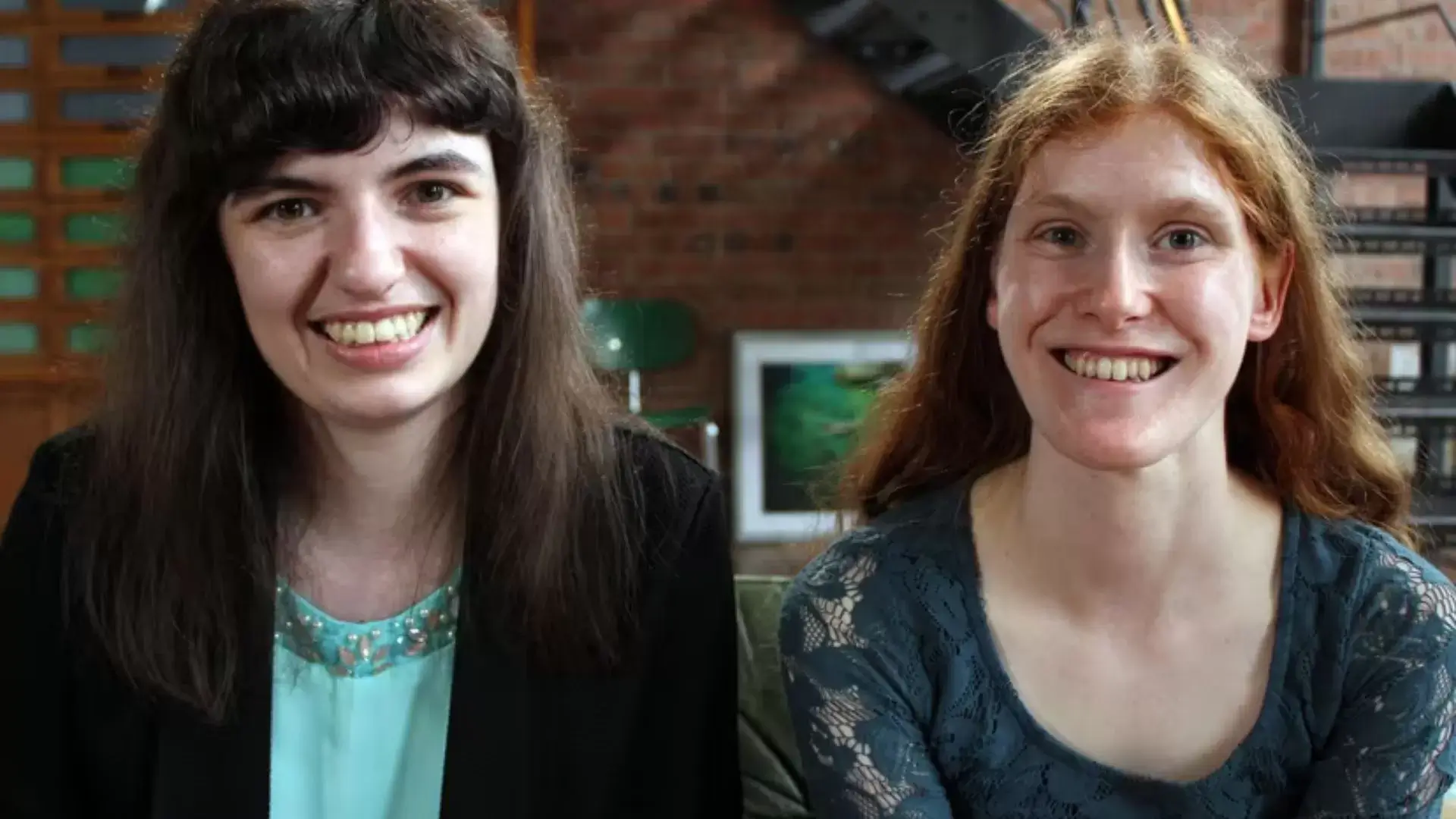Women's Mental Health Counselling Therapy for Autism
- Home
- »
- Women’s Mental Health Counselling Therapy for Autism
We recognize that women’s mental health counselling therapy for autism is crucial for addressing unique challenges. This therapy creates a safe space, focusing on empowering women to explore their experiences. We emphasize neurodiversity, acceptance, and trauma-informed care, helping women navigate anxiety, low self-esteem, and relationship dynamics. Through tailored coping strategies and community support, we foster emotional resilience. It’s important to acknowledge the differences in how women experience autism and seek help that’s attuned to their needs. If you’re looking for more insights into this important journey, there are many ways to enhance your understanding and support.

About Women's Mental Health Counselling Therapy
Women’s Mental Health Counselling therapy provides a safe space for individuals to explore their unique experiences and challenges, especially when traversing the complexities of autism. We recognize that women on the autism spectrum often face distinct hurdles, including anxiety disorders and difficulties in social skills. That’s why our therapy focuses on neurodiversity, promoting acceptance and understanding of each person’s unique brain wiring.
In our sessions, we emphasize emotional well-being, ensuring that every woman feels heard and supported. We utilize trauma-informed care, recognizing that past experiences can greatly impact mental health. Our goal is to empower women by developing effective coping strategies tailored to their individual needs.
Through our women’s counseling services, we foster a sense of community and connection, helping to dispel feelings of isolation. We believe that emotional support is essential in this journey, and we’re dedicated to providing a nurturing environment where women can thrive. By engaging in women’s mental health counselling therapy, we can cultivate resilience and self-advocacy, ultimately enhancing overall quality of life for those navigating the challenges of autism spectrum disorder. Together, we can create a brighter future filled with hope and empowerment.
Understanding Autism Spectrum Disorder (ASD) in Women's Mental Health
Understanding Autism Spectrum Disorder (ASD) in women is fundamental, as many face unique challenges that can deeply affect their mental health and overall well-being. Women with autism often experience symptoms differently than men, which can lead to misdiagnosis or late diagnosis. As a result, we might see higher rates of anxiety and depression among women on the spectrum, compounded by societal expectations regarding social interaction.
In our journey toward trauma recovery, it’s important to recognize how autism symptoms can intertwine with our emotional experiences. Many of us develop coping mechanisms that may not always be healthy, making it essential to seek mental health resources tailored to our needs. Building emotional resilience becomes a key focus as we navigate our mental health challenges.

Comprehensive Autism Assessment and Diagnosis for Women
A thorough autism assessment is fundamental for women, as it helps reveal the unique traits and challenges they face, guaranteeing they receive the appropriate support and understanding. Women often experience autism differently than men, and recognizing this difference is imperative for an accurate autism diagnosis. Through an extensive autism assessment, we can identify various aspects of the autism spectrum, including communication challenges, sensory processing issues, and behavioral challenges that may affect daily life.
Early intervention is key to maneuvering through these complexities. By understanding the specific needs of women with autism, we can tailor women’s mental health support to include effective autism therapies that address their unique experiences. This not only fosters a better quality of life but also empowers women to advocate for themselves.
Moreover, when we approach the assessment process with empathy and compassion, it creates a safe environment for women to express their feelings and experiences. By prioritizing these assessments, we can guarantee that women receive the guidance they need, paving the way for successful coping strategies and overall mental health. Ultimately, an extensive autism assessment is a significant step in supporting women on the autism spectrum.
Addressing Co-Occurring Conditions in Women with Autism
Steering through the complexities of co-occurring conditions in women with autism is imperative for providing holistic support and fostering overall well-being. Many of us understand that autism spectrum disorder often comes hand-in-hand with various co-occurring disorders, such as anxiety and trauma-related issues. Addressing these conditions through women’s therapy can considerably improve emotional health and enhance the quality of life.
In our mental health counseling sessions, we focus on thorough anxiety management strategies tailored specifically for women. We recognize that social anxiety can be particularly challenging, making it essential to create a safe space where we can explore these feelings together. Trauma therapy can also play an important role in addressing past experiences that may affect current well-being.
Through psychotherapy for women, we aim to equip ourselves with effective coping mechanisms and tools to navigate these challenges. By fostering an understanding of co-occurring conditions, we can create a supportive environment that encourages healing and growth. Ultimately, our collective journey in autism support helps us to thrive, paving the way for more fulfilling lives despite the hurdles we face.

Cognitive Behavioral Therapy (CBT) for Women with Autism
Building on our exploration of co-occurring conditions, Cognitive Behavioral Therapy (CBT) offers a tailored approach for women with autism to address the unique challenges they face in managing thoughts and emotions. This form of therapy focuses on recognizing and reshaping negative thought patterns, which can be especially beneficial for those of us maneuvering anxiety relief and emotional regulation related to autism spectrum disorder.
By integrating CBT into our mental health journey, we can enhance our self-esteem and tackle specific women’s issues, such as relationship problems and trauma recovery. As we engage in this therapeutic process, we learn practical skills to cope with daily stressors, ultimately fostering resilience and promoting holistic therapy.
Moreover, participating in women’s support groups alongside CBT can amplify our healing journey, providing community and encouragement. Together, we find that addressing our individual challenges through this structured approach not only empowers us but also enriches our overall well-being. By embracing CBT, we take proactive steps toward understanding ourselves better and creating a fulfilling life, tailored to our unique experiences as women with autism.
Enhancing Social Skills and Communication for Women with Autism
Enhancing our social skills and communication is fundamental for maneuvering the complexities of relationships and daily interactions as women with autism. By focusing on these skills, we can better navigate social cues and foster connections that support our emotional recovery and overall well-being.
Utilizing communication devices can be a game-changer, allowing us to express our thoughts and feelings more effectively. This is particularly important in autism-friendly environments where understanding and acceptance are prioritized. It’s also essential to engage in autism services that promote empathy development; these programs can guide us in recognizing and responding to the emotions of others, which is critical for building meaningful relationships.
As we work on enhancing social skills, we should celebrate our individual developmental milestones, recognizing that growth looks different for each of us. With increased autism awareness, we can create spaces that are supportive of our unique experiences and challenges. Ultimately, investing in our social skills and communication not only enriches our lives but also contributes to our women’s emotional health, reminding us that we’re not alone on this journey. Together, we can thrive and foster connections that matter.
Managing Sensory Processing Issues and Sensory Sensitivities in Women
Steering through sensory processing issues and sensitivities can feel overwhelming at times, but understanding our unique triggers and needs is essential for fostering a supportive environment. For many of us on the autism spectrum, sensory sensitivities can lead to heightened anxiety or discomfort. By recognizing these challenges, we can better advocate for our mental wellness.
We can develop coping strategies that promote self-regulation and mindfulness. For instance, creating a sensory-friendly space at home can help us recharge when overwhelmed. Simple tools like noise-canceling headphones or weighted blankets can ease sensory overload, allowing us to focus on emotional trauma recovery.
It’s important to embrace inclusion within our communities, as sharing our experiences can foster understanding and empathy. Engaging in open conversations about sensory processing issues not only helps us feel supported but also educates those around us.
Emotional Regulation and Coping Mechanisms for Women with Autism
Emotional regulation can be a complex journey for us as women on the autism spectrum, but developing effective coping mechanisms is key to steering our feelings and experiences. We often navigate a unique set of challenges due to our neurodevelopmental disorder, which can heighten anxiety and stress. By focusing on self-awareness, we can begin to identify our emotional triggers and responses.
Behavioral therapy offers us strategies to enhance our emotional regulation. Through anxiety counseling, we can learn to recognize patterns in our emotions and develop healthier responses. Mindfulness-based therapy is another powerful tool, allowing us to stay grounded in the present moment and manage overwhelming feelings more effectively.
Incorporating stress management techniques, like deep breathing exercises or journaling, can be transformative. These practices empower us to take control of our emotions, fostering a sense of women’s empowerment. By embracing these coping mechanisms, we not only enhance our emotional well-being but also build resilience. Together, we can support each other in this journey, reminding ourselves that we’re not alone in facing the challenges of emotional regulation as women with autism spectrum disorder.
Relationship and Interpersonal Challenges for Women with Autism
Steering relationships can be particularly challenging for us as women on the autism spectrum, as we often face unique social dynamics and communication barriers that complicate our interactions with others. These interpersonal challenges can leave us feeling isolated or misunderstood. Relationship counseling can be a powerful tool to help us navigate these complexities, enhancing our communication skills and emotional regulation.
Through mental health therapy, we can explore social stories that illustrate various relationship scenarios, enabling us to practice and prepare for real-life interactions. This practice not only empowers us but also fosters confidence in our social abilities. Parental support plays a significant role, as understanding our needs can help bridge the gap in communication and strengthen our relationships.
Moreover, autism advocacy encourages us to share our experiences, raising awareness about the unique challenges we face. By focusing on women’s empowerment, we can cultivate resilience and a sense of belonging within our communities. Together, we can work towards building more fulfilling relationships, ensuring our voices are heard and valued in all aspects of our lives.
Autism Support Groups for Women: Building Community and Belonging
Finding a supportive community through autism support groups can foster a sense of belonging and empowerment for women on the spectrum. These groups provide essential community support, allowing us to share our experiences and challenges related to autism spectrum disorder. When we come together, we not only gain valuable autism resources but also cultivate meaningful social connections that enhance our psychological well-being.
Women’s empowerment is a core focus in these settings, where discussions often center around gender-specific therapy and autism treatment tailored to our unique needs. By participating in these groups, we can explore mental health care strategies that resonate with us, helping to build resilience and self-advocacy skills.
Additionally, support groups often advocate for inclusive education, creating environments where our voices are heard and valued. Here, we can celebrate our identities, share insights, and learn from one another’s journeys. Ultimately, these safe spaces allow us to grow, heal, and thrive together, reminding us that we’re not alone in traversing the complexities of autism. Being part of a community can truly transform our experiences, bringing hope and strength to our lives.
Mindfulness and Relaxation Techniques for Women with Autism
As we navigate the complexities of autism together, incorporating mindfulness and relaxation techniques can greatly enhance our mental well-being and help us manage daily stressors more effectively. Mindfulness meditation allows us to center ourselves, fostering stress relief and improving our executive function, which is often challenged in those of us on the autism spectrum disorder.
For many women with autism, finding calm amidst sensory overload can be a journey of personal growth. By practicing relaxation techniques, we can create a safe space to process our feelings and experiences. This process not only aids in sensory integration but also serves as a form of mental health advocacy, empowering us to take control of our emotional landscape.
We can explore various strategies, from deep breathing exercises to guided imagery, that cater specifically to our needs. These practices help us ground ourselves, providing tools to manage anxiety and enhance our overall well-being. Together, we can embrace these techniques as a crucial part of our self-care regimen, fostering resilience and supporting our journey through autism in women. With this empowerment, we can thrive and nurture a healthier mindset.
Holistic and Lifestyle Approaches to Supporting Women with Autism
Many of us can benefit from exploring holistic and lifestyle approaches that nurture our unique strengths and needs as women on the autism spectrum. By embracing holistic wellness, we can address the multifaceted challenges we face, such as identity issues and mood disorders. These approaches often include self-care practices that promote mental and emotional well-being, allowing us to cultivate resilience during life changes.
Incorporating stress reduction techniques, like yoga or nature walks, can help us ground ourselves and find peace amid daily challenges. Additionally, grief counseling can be essential in processing our experiences and fostering autism acceptance. By sharing our stories and supporting one another, we empower ourselves and strengthen our community.
Women’s empowerment is vital as we navigate the complexities of autism spectrum disorder. Engaging in activities that promote connection and personal growth can greatly enhance our quality of life. Together, we can explore nutrition, exercise, and mindfulness practices that resonate with us, helping to create a balanced lifestyle. By prioritizing our holistic wellness, we not only support ourselves but also inspire those around us. Let’s embrace our journey with compassion and understanding.
Addressing Body Image and Self-Esteem Challenges for Women on the Spectrum
Steering body image and self-esteem challenges can be particularly difficult for women on the autism spectrum, but together, we can foster a supportive environment that nurtures our unique identities and promotes self-acceptance. Women with autism spectrum disorder (ASD), especially those with high-functioning autism, often grapple with societal pressures regarding body image. These pressures can lead to emotional struggles, including postpartum depression and eating disorders, affecting our overall self-worth.
Through psychotherapy and gender-focused therapy, we can explore these challenges in a safe space. By addressing issues like maternal mental health, we empower each other to embrace our bodies and redefine our notions of beauty. This journey isn’t just about overcoming negative perceptions; it’s about building resilience and recognizing our value beyond societal standards.
We must support one another in sharing our experiences, validating our feelings, and celebrating our strengths. Women’s empowerment is essential in this process, as it helps us reclaim our narratives and foster self-acceptance. Together, we can create a community that uplifts every woman on the spectrum, reminding each other that our worth is inherent, regardless of external expectations.
Occupational Therapy and Adaptive Skills Development for Women with Autism
Occupational therapy plays an essential role in helping women with autism develop adaptive skills that enhance their daily living and overall well-being. By focusing on individualized approaches, we can empower women on the autism spectrum to navigate challenges associated with learning disabilities and improve their motor skills. Through structured routines and visual schedules, occupational therapy offers practical strategies that foster independence and confidence.
In our sessions, we aim to create a supportive environment where women can explore their unique strengths and abilities. By emphasizing adaptive skills development, we can help them manage everyday tasks, from self-care to professional skills, which are crucial for women’s empowerment. This not only aids in managing autism in adults but also promotes a sense of accomplishment and self-worth.
Additionally, occupational therapy integrates play and social activities, enhancing social interaction and communication skills. As we work together, we can break down barriers and promote inclusion within special needs education settings. Ultimately, our goal is to equip women with the tools they need to thrive, creating a positive impact on their lives and the lives of those around them.
Navigating Life Transitions and Identity Challenges in Women with Autism
As we navigate the complexities of life changes, it’s important to recognize the unique identity challenges that women with autism often face. Many of us may encounter significant shifts—like starting a career, balancing work-life responsibilities, or experiencing motherhood—which can amplify feelings of overwhelm. These shifts can impact our mental health, making counseling for women an essential resource for support.
Understanding the early signs of autism can help us embrace our identity within the autism spectrum disorder, fostering resilience and women’s empowerment. We might struggle with societal expectations or self-perception, but by seeking trauma healing and connecting with others who share similar experiences, we can find strength in our journeys.
Moreover, prioritizing maternal health during these shifts can be critical for those of us who are mothers. By developing coping strategies and work-life balance, we can enhance our mental well-being. Embracing our identity as women with autism empowers us to advocate for ourselves and others, creating a supportive community where we can thrive. Through counseling and shared experiences, we can navigate these challenges together, fostering a sense of belonging and understanding.
Contact Us for Expert Women's Mental Health Counseling Therapy for Autism
We recognize that seeking expert mental health counseling for women with autism can be a crucial step towards achieving emotional well-being and empowerment. Our team specializes in addressing the unique challenges faced by women on the autism spectrum, offering support that promotes mood stabilization and overall mental health.
Through our tailored approach, we provide essential services such as ABA therapy and speech therapy, which are integral for helping individuals navigate communication and behavioral challenges. We acknowledge that many women may also experience perinatal mental health issues, and our depression treatment programs are designed to meet these needs compassionately and effectively.
We believe in the importance of women’s empowerment and work to create a safe space where clients can openly discuss their experiences. Whether you’re seeking guidance for autism in children or looking for specialized support in special education, we’re here to help. Our commitment to fostering a supportive environment guarantees that you receive the best care possible.
If you’re ready to take that important step towards empowerment and well-being, don’t hesitate to contact us. Together, we can work towards a brighter, more fulfilling future.

Frequently Asked Questions
How Can I Find a Therapist Specializing in Women's Autism Counseling?
Finding a therapist who specializes in our needs can feel overwhelming, but we can take some simple steps. First, we should seek recommendations from friends or online support groups. Next, we can search directories of therapists that focus on our specific concerns. It’s also helpful to check their credentials and read reviews. Finally, reaching out for an initial conversation can help us gauge if they’re the right fit for our journey.
What Are the Signs of Autism in Women That I Should Look For?
When we think about the signs of autism in women, we might notice things like social challenges, difficulty with eye contact, or avoiding certain conversations. Many of us might also find it hard to express our emotions or understand social cues. Additionally, we often have intense interests that can seem unusual. Recognizing these signs can be the first step toward understanding ourselves better and seeking support if needed. We’re not alone in this journey.
Can Autism Therapy Be Covered by Insurance for Women?
When it comes to insurance coverage for autism therapy, we’ve found that it varies widely by provider and policy. Some plans do cover it, while others may have limitations. It’s important for us to check our specific insurance policy and speak with our provider about the details. We can also explore options like flexible spending accounts or state programs that might help cover therapy costs. Remember, advocating for ourselves is key!
Are There Specific Resources for Mothers of Daughters With Autism?
When we’re looking for resources for mothers of daughters with autism, there are several supportive options available. Organizations like the Autism Society and local support groups offer valuable information and community connections. We can also find online forums where we can share experiences and strategies. Additionally, books and workshops tailored for mothers can provide insights and coping techniques. It’s important to know we’re not alone in this journey and support is out there.
How Do I Support a Friend With Autism in a Social Setting?
When supporting a friend with autism in social settings, we should focus on creating a comfortable atmosphere. Let’s communicate openly with them about their preferences and needs. We can help by introducing them to others, providing cues for conversation, and being patient if they need breaks. It’s important to be understanding and to advocate for them when necessary. Together, we can foster an inclusive environment where they feel accepted and valued.

